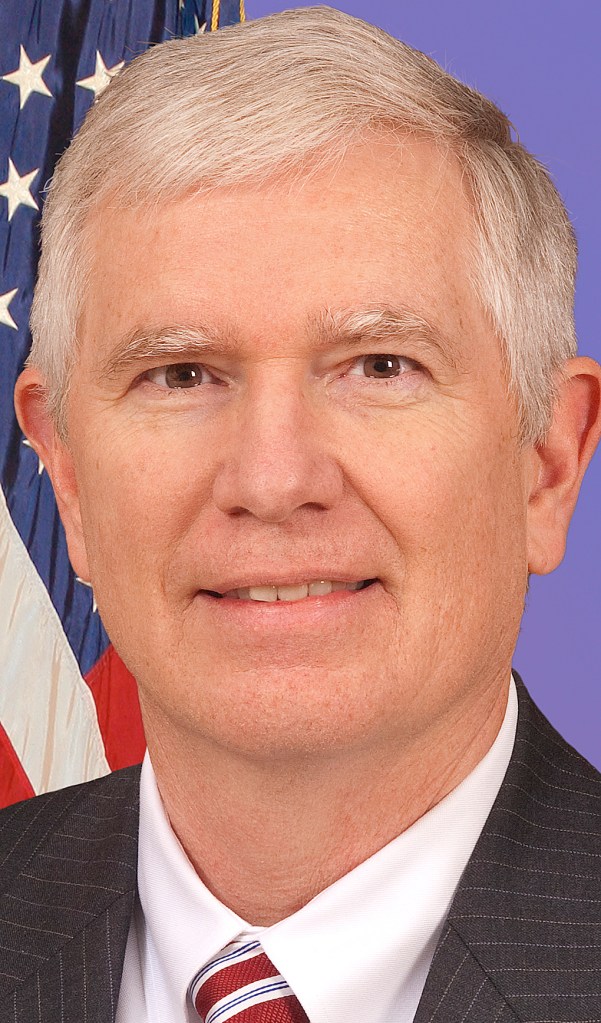U.S. Rep. Mo Brooks responds to Congress’ reversal on ethics proposal
Published 4:47 pm Tuesday, January 3, 2017

- Mo Brooks
Limestone County’s congressional representative on Tuesday responded to an about-face decision by Congress to neuter the independent Office of Congressional Ethics and place it under lawmakers’ control.
U.S. Rep. Mo Brooks, R-5th, described the measure pushed by his Republican colleagues as “rushed, inadequately researched and inadequately understood by Congress and the public.” He went on to say he did not care for last-minute major policy revisions.
Trending
“In my view, it is inappropriate to consider an issue of this magnitude with so little public debate and so little time for proper evaluation and consideration,” Brooks said. “The final version of the proposed changes to the Ethics Office was provided to Congressmen with less than 24 hours before a scheduled House floor vote.”
The congressman said while the ethics reform proposal contained some positive policy changes, such as guaranteeing congressmen accused of ethical violations the same protections afforded citizens in America’s judicial system, it also contained questionable provisions which warranted further review and understanding.
Brooks added he was thankful that President-elect Donald Trump intervened in the process.
“With all that Congress has to work on, do they really have to make the weakening of the Independent Ethics Watchdog, as unfair as it may be, their number one act and priority,” Trump had asked over Twitter Tuesday morning, in an objection that appeared focused more on timing than on substance.
The Office of Congressional Ethics was created in 2008 after several bribery and corruption cases in the House, but lawmakers of both parties have groused about the way it operates.
Lawmakers were especially incensed by an investigation of members of Congress from both parties who went on a 2013 trip to Azerbaijan paid for by that country’s government. Lawmakers said after the investigation was made public in 2015 that they had no idea the trip was paid for by the government, and the House Ethics Committee ultimately cleared them.
Trending
Back to business
Once the ethics controversy was dispensed with, Congress returned to the ceremonial business. As set out in the Constitution, both chambers gaveled in at noon, and as storm clouds threatened outside, the halls of the Capitol filled with lawmakers’ children, friends and spouses on hand to witness the procedures. The day had a festive feel of the first day back at school, as new arrivals roamed the halls with old hands, exchanging greetings and taking in the day.
In the Senate, seven new members joined those who won re-election, taking the oath of office administered by Vice President Joe Biden. The Senate will be controlled 52-48 by the GOP and includes two new Republicans and five new Democrats. They include Illinois’ Tammy Duckworth, a double-amputee Iraq war vet, who walked to the dais and stood for the oath.
Biden remains president of the Senate until Trump becomes president Jan. 20; then Vice President-elect Mike Pence will take over.
Senate Minority Leader Chuck Schumer of New York set battle lines, saying Democrats will hold Trump to his promises to create jobs, raise incomes and protect Americans but will “fight him tooth and nail when he appeals to the baser instincts that diminish America and its greatness.”
Issues confronting America are complex, he said, and “we cannot tweet them away.”
In the House, lawmakers easily re-elected Ryan, of Wisconsin, as their speaker. The House will number 241 Republicans and 194 Democrats; among the members are 52 freshmen.
Behind the ceremony was a sense of anticipation, as Republicans prepare an ambitious agenda, beginning with dismantling President Barack Obama’s health care law. That will start with a procedural vote later this week in the Senate.
But there was uncertainty, too, as Republicans confront an untested new president who has opposed fundamental elements of GOP orthodoxy and may exercise his influence in unpredictable ways, as illustrated with the ethics kerfuffle.
“The people have given us unified government, and it wasn’t because they were feeling generous, it’s because they wanted results,” Ryan said. “How could we live with ourselves if we let them down?”
— The Associated Press contributed to this report.





